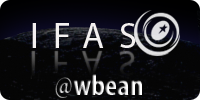There's a lot of buzz around the Higgs Boson this morning.
I always get so excited when it's mentioned in the news, but recently I've been wondering to myself, what kind of technological advancements can get achieve on the back of these discoveries? I of course had to set aside my complete satisfaction and delight of just the discovery and a larger understanding of the universe to ask myself this question. Not to mention the possible validation of the standard model. I did find that other articles have also asked this question; What can we do with the Higgs Boson?
I'm not too fond of the term "God particle", which nowadays seems to be the name mostly used by science correspondence, when trying to explain the Higgs boson it to the masses. However, if the Higgs boson is what gives things mass, perhaps the name is suitable and hints at possible practical uses for it. How about somehow harnessing the elementary particles to create mass out of energy? If a hypothetical particle which conveys gravity were to be discovered, could we manipulate it to create artificial gravity? I'm sure there are many more crazy ideas out there.
Like many have concluded, it is enough to discover the Higgs boson and to grow our understanding of the universe. It's the reward for our amazing and natural human curiosity. Anything else is a bonus!
Showing posts with label physics. Show all posts
Showing posts with label physics. Show all posts
4 July 2012
2 March 2012
UCC Transition Year Astronomy Module
A new transition year astronomy module has been designed and launched in a collaboration between Irish physics teachers, The Science Foundation of Ireland and the physics Dept. at UCC.
Serving as a broad introduction to the field of astronomy and astrophysics, students will conduct experiments, learn about the planets and their movements, and learn about the physics which govern our universe.
This fantastic module is the brain child of Dr. Paul Callanan and I just wish had been available when I was in school.
All the necessary information about the module can be found right here
Labels:
astronomy,
education,
physics,
transition year,
UCC
21 February 2012
Solar Maximum 2012
University College Corks very own Dr. Paul Callanan talks about this years solar maximum, coronal mass ejections and the resulting displays on earth, known as the aurora borealis.
Paul is also in charge of the X-Ray Binaries Research Group in UCC
Labels:
astrophysics,
CME,
physics,
solar,
solar maximum,
sun,
UCC
Subscribe to:
Posts (Atom)



